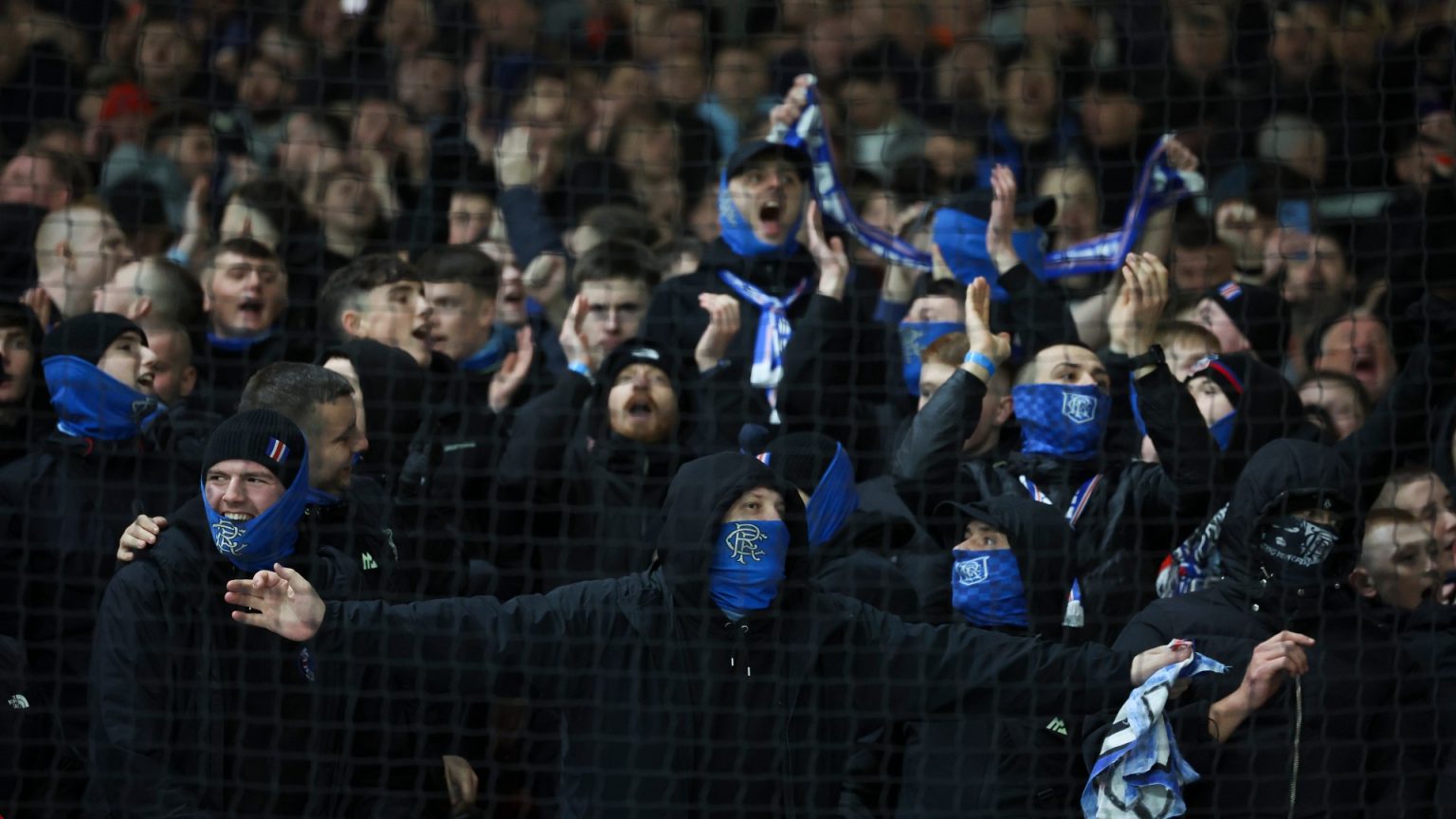The Europa League clash between Manchester United and Rangers at Old Trafford was marred by a security breach that allowed hundreds of Rangers supporters to infiltrate the home sections of the stadium, sparking outrage among Manchester United fans. Videos circulating on social media showed large groups of Rangers fans chanting and singing in areas designated for home supporters, with some clips even depicting Manchester United fans struggling to navigate through the throngs of away supporters. This incident has fueled criticism of Manchester United’s management, with fans expressing their anger and frustration online, branding the club a “joke” and lamenting the perceived decline of the institution. The security lapse has raised serious questions about the club’s organization and ability to control its own stadium, further exacerbating existing tensions surrounding the club’s ownership and performance.
The infiltration of Rangers fans into the home sections wasn’t the only issue plaguing Manchester United. The match also marked the return of goalkeeper Jack Butland to Old Trafford, playing for Rangers after recovering from a serious internal injury earlier in the month. Butland’s presence served as a stark reminder of the team’s struggles and the challenges they face in rebuilding their squad. Off the pitch, Manchester United’s financial woes continued to dominate headlines, with the club admitting the risk of breaching Premier League Sustainability Rules (PSR). This precarious financial situation further darkened the cloud hanging over Old Trafford, adding to the sense of unease among fans already disillusioned by the team’s on-field performances and the ongoing ownership controversies.
Manchester United’s financial predicament was further highlighted by a letter sent to fan groups, outlining the club’s significant financial losses over the past three years, exceeding £300 million. This communication underscores the severity of the situation and the urgent need for cost-cutting measures to avoid breaching PSR and Financial Fair Play (FFP) regulations. The letter explicitly states the potential impact on the club’s competitiveness if these financial issues are not addressed, emphasizing the importance of restoring financial stability to regain their position at the top of English and European football. This acknowledgment of financial instability adds another layer of complexity to the challenges facing the club, forcing them to balance the need for on-field success with the imperative of financial responsibility.
The letter to fan groups details the steps Manchester United is taking to address its financial challenges, including workforce reductions and spending cuts across various departments. While acknowledging the difficulty of these decisions, the club emphasizes their necessity in achieving financial sustainability. Significantly, the letter indicates that while fans are not expected to bear the full burden of the financial shortfall, adjustments to the ticketing strategy are being considered. This suggests potential ticket price increases or a restructuring of discounts, a move that could further alienate a fan base already grappling with the team’s performance and the perceived mismanagement of the club.
The convergence of these issues – the security breach, the ongoing financial struggles, and the potential for increased ticket prices – has created a perfect storm of discontent among Manchester United supporters. The Rangers incident served as a catalyst, igniting pre-existing frustrations and anxieties about the direction of the club. The sense of vulnerability and mismanagement highlighted by the security lapse, coupled with the looming financial constraints, has deepened the divide between the club and its fans. The uncertainty surrounding the future of Manchester United, both on and off the field, has left supporters questioning the club’s leadership and its ability to navigate these turbulent times.
The situation at Manchester United underscores the complex interplay between on-field performance, financial stability, and fan relations. The security breach, while a standalone incident, has become symbolic of the wider malaise affecting the club. It has exposed vulnerabilities in the club’s operations and amplified existing concerns about the ownership and management. The financial challenges, while significant, are further exacerbated by the negative sentiment among the fanbase. As Manchester United grapples with these multifaceted issues, the club’s leadership faces the daunting task of restoring confidence and unity among its supporters while simultaneously addressing the pressing financial concerns threatening its long-term stability and competitiveness.




